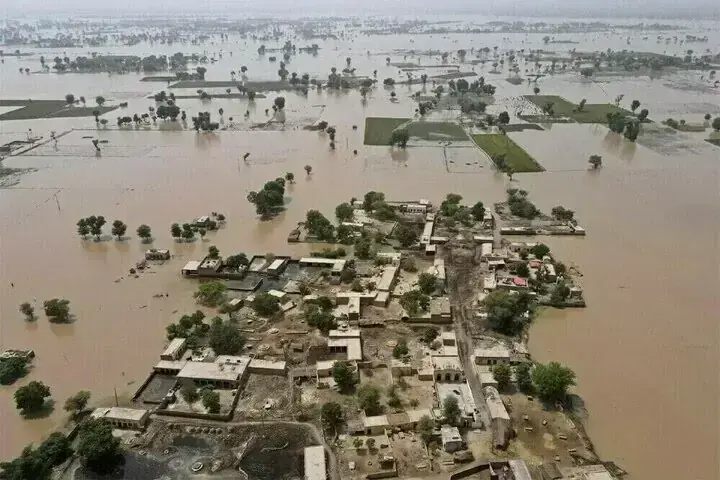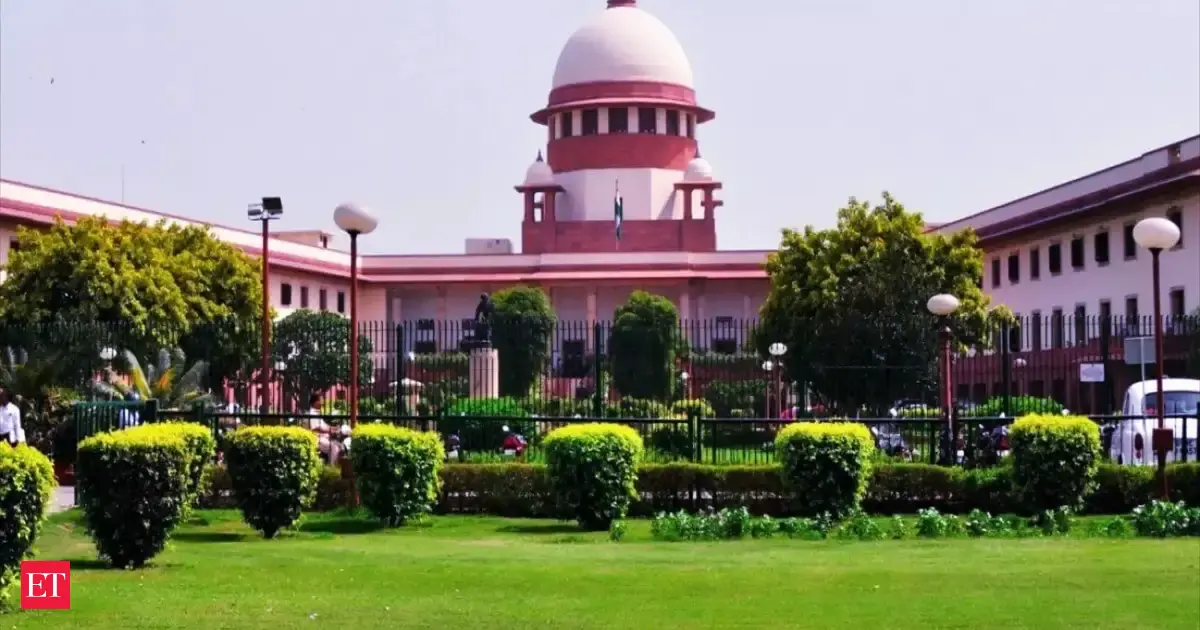
EDITORIAL: During his recent visit to flood-ravaged Toba Tek Singh in Punjab, Finance Minister Muhammad Aurangzeb affirmed that the climate and agricultural emergencies declared by the prime minister last week would be fully leveraged to not just rehabilitate the affected communities, but also to confront the root causes and long-term consequences of such disasters.
While he pledged swift measures to mitigate the immediate impact of flooding, such as curbing the hoarding of essential goods to prevent artificial shortages, inflation and their cascading effects, he rightly stressed that it is equally, if not more, vital to ensuring sustained investments in preparedness and structural reforms that can shield vulnerable populations from future crises.
The minister hit the nail on the head when he remarked that “we must reflect on the self-inflicted pains, such as poor zoning laws and inappropriate land use for housing societies and crop cultivation that exacerbate the damage from natural disasters”. Any agri-climate emergency, therefore, must go beyond immediate relief and rehabilitation measures, and prioritise the addressing of reckless, ill-planned urban expansion and unsustainable agricultural practices, which have deepened ecological vulnerability and left communities increasingly exposed to climate shocks.
Our cities require nothing less than a comprehensive overhaul of zoning frameworks, construction standards and building codes, with strict enforcement to safeguard both public welfare and the health of ecosystems.
The unchecked construction of housing societies and commercial ventures on natural waterways, river banks and on storm-water drains has resulted in losses worth billions, exposing the unbridled greed driving such projects, and the incompetence and complicity of authorities who chose to turn a blind eye to these encroachments.
Media reports have noted, for instance, that the Punjab irrigation department had long designated certain areas in Lahore as “flood-prone”. Yet widespread regulatory violations enabled the extensive construction of private housing schemes in these zones, leading to much devastation after the recent rains. The rules governing such projects are routinely flouted, applied selectively or, in some cases, don’t deem encroachments and constructions on or near natural waterways as illegal at all.
Even in the case of illegal encroachments, it must be noted that these do not occur in isolation. They are connected to the wider city infrastructure, indicating the tacit involvement of multiple government departments. The core issue, therefore, lies in the government’s failure to enforce its own laws.
What is urgently needed, therefore, is the strict implementation of existing zoning and land-use regulations, alongside new legislation where gaps remain. Equally important, the practice of granting discretionary waivers to illegal constructions by competent authorities must be brought to an end. Finally, vital urban infrastructure — storm-water drainage, pumping stations and emergency response systems — must be strengthened as their inadequacy, particularly in cities like Karachi, turns heavy downpours into urban catastrophes.
Equally urgent is the need to address devastation in rural areas. In Punjab alone, around 1.3 million acres of farmland remains submerged, much of it in low-lying tracts, floodplains and riverbeds. As with our cities, the remedy is similar: step aside and let the water flow where it must.
Cultivation on riverbeds should never have been permitted, and as has been noted in this paper recently, these areas ought to serve as natural recharge zones for groundwater and soils. Farmers must be incentivised to vacate floodplains; and, at the very least, cultivation there must be banned during the high-risk months between June and September.
What Pakistan ultimately needs is a complete paradigm shift, wholly rethinking at a granular level how we build our cities and cultivate our lands to align with nature’s rhythms. Blaming high-emission countries for the climate-induced plight we find ourselves in is insufficient. Global accountability matters, but without fixing our own failures, our people and land will continue to be ravaged by climate disasters.
Copyright Business Recorder, 2025



